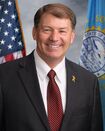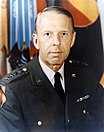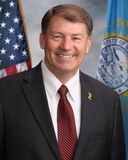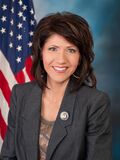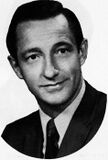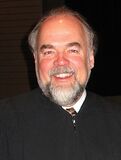South Dakota State University
Topic: Organization
 From HandWiki - Reading time: 16 min
From HandWiki - Reading time: 16 min
| Error creating thumbnail: Unable to save thumbnail to destination South Dakota State University | |
Former name | Dakota Agriculture College (1881–1904) South Dakota State College of Agriculture and Mechanic Arts (1904–1964) |
|---|---|
| Type | Public land-grant research university |
| Established | 1881 |
Academic affiliations | Space-grant, Sun-grant |
| Endowment | $213 million (2021) [1] |
| Budget | $308 million (FY2022)[2] |
| President | Barry H. Dunn |
| Provost | Dennis Hedge |
Academic staff | 622.81(2021-2022)[2] |
| Students | 11,465[2] |
| Undergraduates | 9,717[2] |
| Postgraduates | 1,406[2] |
Other students | 342 (professional)[2] |
| Location | Brookings, South Dakota , U.S. [ ⚑ ] : 44°19′05″N 96°47′00″W / 44.31806°N 96.7833333°W |
| Campus | 400.69 acres (162.15 ha)[2] |
| |u}}rs | Yellow and blue[3] |
| Nickname | Jackrabbits |
| Mascot | Jack the Jackrabbit |
| Website | sdstate |
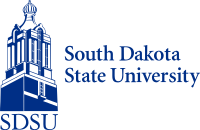 | |
South Dakota State University (SDSU or SD State) is a public land-grant research university in Brookings, South Dakota. Founded in 1881, it is the state's largest and most comprehensive university and the oldest continually operating university in South Dakota.[4] The university is governed by the South Dakota Board of Regents, which governs the state's six public universities and two special schools.
South Dakota State University is a land-grant university founded under the provisions of the 1862 Morrill Act. This land-grant heritage and mission has led the university to place a special focus on academic programs in agriculture, engineering, nursing, and pharmacy, as well as liberal arts. It is classified among "R2: Doctoral Universities – High research activity". The graduate program is classified as Doctoral, Science, Technology, Engineering, Math dominant.[5]
History

The university was founded in the Dakota Territory on February 21, 1881, as Dakota Agriculture College. The first building, with funding from the territorial legislature, was built in 1883, six years before the State of South Dakota was formed. Numerous expansions were funded in the late 19th century and early 20th century. The name was changed in 1904 to South Dakota State College of Agriculture and Mechanic Arts. In 1964, the name was changed to South Dakota State University. The name change was largely promoted by the Alumni Association. Initiated in 1962, this name change reflected the more comprehensive education offered at the university.[6]
In 1923, SDSU's instructional program was organized under five divisions: Agriculture, Engineering, General Science, Home Economics, and Pharmacy. In 1956, a Nursing program was established, and in 1957 a formal graduate school was formed. When the university changed its name in 1964, the colleges were renamed Agriculture and Biological Sciences, Arts and Sciences, Engineering, Home Economics, Nursing, Pharmacy, and the Graduate School. In 1974, the College of General Registration (now the College of General Studies) was formed. In 1975, the Division of Education was created. An Honors College was formed in 1999. Two colleges and seven departments combined in 2009 to create the College of Education and Human Sciences.
In 2017, the colleges which make up the university were revised and in some cases renamed to the following: College of Agriculture, Food and Environmental Sciences; College of Arts, Humanities and Social Sciences; College of Education and Human Sciences; College of Nursing; College of Pharmacy & Allied Health Professions; Graduate School; Jerome J. Lohr College of Engineering; University College; and Van D. and Barbara B. Fishback Honors College.
Presidents
On May 23, 2016 (formal inauguration held September 29, 2016), Barry H. Dunn became the 20th President of South Dakota State University. Dunn and his wife are alumni of SDSU, and prior to becoming president, Dunn was the Dean of SDSU's College of Agriculture and Biological Sciences.
- George Lilley, 1884–1886
- Lewis McLouth, 1886–1896
- John Heston, 1896–1903
- James Chalmers, 1903–1906
- Robert Slagle, 1906–1914
- Ellwood Perisho, 1914–1918
- Willis Johnson, 1919–1923
- Charles Pugsley, 1923–1940
- George Brown, 1940
- Lyman Jackson, 1941–1946
- Fred Leinbach, 1947–1951
- John Headley, 1952–1957
- H. M. Crothers, 1957–1958
- Hilton Briggs, 1958–1975
- Sherwood Berg, 1975–1984
- Ray Hoops, 1984–1985
- Robert Wagner, 1985–1997
- Peggy Gordon Miller 1998–2006
- David Chicoine, 2006–2016
- Barry H. Dunn, 2016–present
Campus
Main campus

The Hilton M. Briggs Library consists of more than 635,000 bound volumes, 315,000 government documents, 79,000 maps, and 1,800 journal titles (with 28,000 additional titles available online). Within the Briggs Library is the Daschle Research Library dedicated to former U.S. Senate Majority Leader Tom Daschle (SDSU BA 1969), which houses his Congressional papers.
The University Student Union is at the center of campus and houses many amenities for both students and the public.[7] The Union is the home to numerous meeting rooms, a ballroom, The Hobo Day Committee (homecoming committee), the University Program Council,[8] Greek life[9] the Students' Association,[10] The Collegian[11] student newspaper, Student Legal Services, KSDJ 90.7 FM, Dining Services, four eating facilities, the University Bookstore, Card Services, and International Student Affairs.
Academics
SDSU awards associate degrees, bachelor's degrees, master's degrees, and doctoral degrees. The university provides 175 fields of study. The university's colleges and schools include College of Agriculture, Food and Environmental Sciences; College of Arts, Humanities and Social Sciences; College of Education and Human Sciences; College of Nursing; College of Pharmacy & Allied Health Professions; Graduate School; Jerome J. Lohr College of Engineering; University College; and Van D. and Barbara B. Fishback Honors College.
Rankings
| University rankings | |
|---|---|
| National | |
| Forbes[12] | 471 |
| THE/WSJ[13] | 501–600 |
| U.S. News & World Report[14] | 317 |
| Washington Monthly[15] | 281 |
| Global | |
| U.S. News & World Report[16] | 1172 |
For 2021, U.S. News & World Report rated South Dakota State University as tied for the 144th best public university in the United States and tied as the 284th best university overall.[17]
Awards and Rankings. South Dakota State University.
Political Science Department
Tom Daschle
Mike Rounds
Kristi Noem
SDSU's Department of Political Science has been successful in forming many of the state's current and past congressional delegations. Currently, two of South Dakota's three congressional members are alumni in U.S. Senator Mike Rounds and Governor of South Dakota Kristi Noem. Noem completed her political science degree while she was in Congress. Perhaps the most notable of the program is former U.S. Senate Majority Leader Tom Daschle. Former U.S. Representative Stephanie Herseth has served as a professor of the program. The department helped train two Truman Scholars in 2004 and 2006 respectively, including Tony Venhuizen.[18]
Department of Military Science
The Department of Military Science commissions officers into the United States Army and United States Air Force through the Reserve Officers' Training Corps program. The department's cadets complete the requirements for a bachelor's or graduate degree and are then commissioned as second lieutenants.
Some graduates have become general officers, including William E. DePuy, Jake Krull, Raymond W. Carpenter, Franklin J. Blaisdell, Mark A. Clark. Medal of Honor recipients Leo K. Thorsness and Willibald C. Bianchi attended the university.
Leo Thorsness
Willibald C. Bianchi
William E. DePuy
Research achievements
South Dakota State University currently ranks among the Midwest's top research universities, notably in the fields of agricultural science, biological science, and engineering.[19] It is consistently listed in U.S. News & World Report's "Top 200 National Universities" in its college and university rankings.[19] The campus is also home to the Geospatial Sciences Center of Excellence, a research and educational collaboration with United States Geological Survey Center for Earth Resources Observation and Science.[20][21] The GSCE focuses on basic and applied research in terrestrial remote sensing.[22] SDSU was recognized in 2017 by ShanghaiRanking Consultancy as the seventh most productive university in the US (and 27th globally) for remote sensing research for the period 2011–2015.[23]
The university operates the South Dakota state agricultural research stations around the state, such as the Antelope Range and Livestock Research Station near Buffalo. The Great Plains Writers Conference is a venue for significant regional authors or writers interested in the Great Plains. It was instituted at SDSU in 1976 for writing scholarship.[24]
- Notable research achievements by alumni include:
-
Stephen Foster Briggs '07 invented the Briggs & Stratton engine while a student at SDSU in 1906.
-
Gene Amdahl '48 was the chief architect of the IBM 360 computer in 1964.
-
The first ethanol production facility in the United States was established at SDSU in 1979.
Alumni from the university's research community notable for scientific achievements include:
- Stephen Foster Briggs, B.S. 1907, invented the Briggs & Stratton internal-combustion engine[25]
- Theodore Schultz, B.S. Economics & Agriculture 1928, received the 1979 Nobel Prize in Economics
- Paul Middaugh, B.S., established the nation's first on-campus research facility for ethanol fuel production in 1979[26]
- Gene Amdahl, B.S. Engineering & Physics, 1948, developed the IBM 360 computer and later the IBM 704, IBM 709 computers, and Amdahl's Law[27]
- Aelred Kurtenbach and Duane Sander, electrical engineering professors, founded Daktronics, Inc.[28]
- Carrie Buthe, B.S. Civil Engineering, served as a design engineer for the Lewis and Clark Regional Water System.[29]
Online programs
SDSU offers a variety of online programs. The university offers associate degrees, bachelor's degrees, master's degrees, and certificate programs that students can complete online.[30]
Housing and residential life
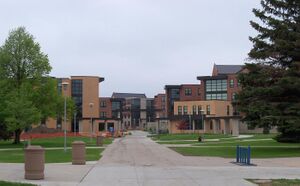
The residential halls on the campus of SDSU make up the densest concentration of people in South Dakota.
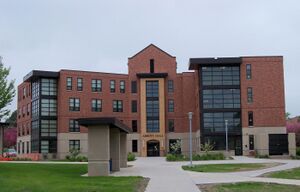
Greek societies
Roughly a dozen fraternities and sororities exist at SDSU.
Student life
Pride of the Dakotas Marching Band
The SDSU Marching Band, "The Pride of the Dakotas," given the special name the Millennium Band in 2000 by the South Dakota State Legislature, has marched in the 1981 and 1997 Presidential Inaugural Parades in Washington, D.C.; A Capital Fourth in 2000 in Washington, D.C.; the 2003 and 2008 Tournament of Roses Parade in Pasadena, California; and the Korean War Monument Dedication at the state's capital Pierre in 2004.[31] In 2022, the marching band performed in the Macy's Thanksgiving Day Parade[32] the same season they would see perform at the FCS title game, seeing the football team win their first FCS National Championship.[33]
Homecoming
The homecoming celebration, Hobo Day, has been dubbed "The Biggest One-Day Event in the Dakotas."[34] The celebration is typically held in October, tracing its origins back to 1907.
Athletics
SDSU participates in athletics as a member of NCAA Division I. SDSU's athletic conference affiliations include the Summit League for most sports, the Missouri Valley Football Conference (Division I FCS), the Big 12 Conference (wrestling) and Varsity Equestrian. The Jackrabbits have 19 varsity sports and numerous intramural and club teams. South Dakota State's athletic mascot for both the men's and women's teams is the Jackrabbit, both the men's and women's sports teams are officially referred to as the Jackrabbits.
Men's basketball
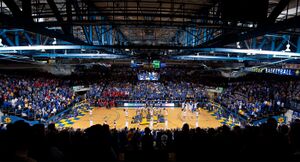
The Jackrabbits were NCAA Division II national champions in 1963; they have sinced joined the ranks of Division I.
Women's basketball
Head coach Aaron Johnston took over the program in 2000. After becoming the first school transitioning to Division I to earn a postseason bid, playing in the WNIT in both 2007 and 2008, SDSU turned its focus to dominating the Summit League. The Jacks have won nine of the 13 conference tournaments they have played in. The program has played in ten NCAA Division I Tournaments, winning four games, highlighted by a trip to the Sweet Sixteen in 2018. The program also won first-round games in 2009 and 2015.
Men's football
As of January 7, 2024, the Jackrabbits have appeared in the NCAA Division I FCS playoffs 14 times with an overall record of 22-11. They were in the Championship game May 20, 2021, losing 23–21 to Sam Houston State. The Jackrabbits were semifinalists in 2017, 2018, and 2021. SDSU has an active streak of 12 consecutive postseason appearances at the FCS level, including the appearance in 2024. Through 2022, this was accomplished by John Stiegelmeier, the school's winningest head coach, after the program managed only one Division II playoff appearance (1979). Beginning in 2023, Jimmy Rogers became the head coach. Zach Zenner became the first Division I football player to record three consecutive seasons of 2,000 rushing yards (2012–14). The program's national standing persuaded ESPN's College Gameday television show to come to the Brookings campus for a live broadcast of its show on October 26, 2019. The Jackrabbits won their first FCS National Championship following the 2022 season and won their second following the 2023 season on January 7, 2024.
Dana Dykhouse buildings and facilities
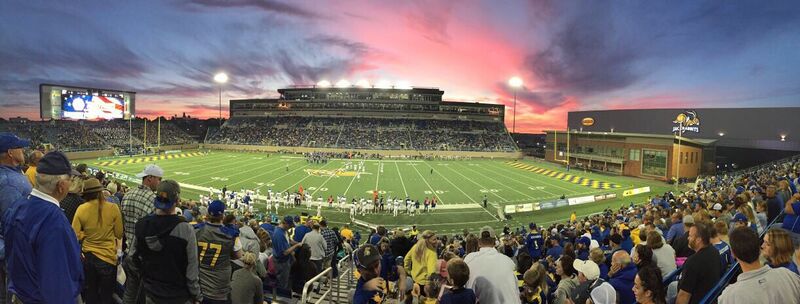
A 19,340-capacity stadium opened in the fall of 2016. It is considered among the premier FCS Division I stadiums.
The Dykhouse Student-Athlete Center, located on the north end of the Dana J. Dykhouse Stadium, is the home of Jackrabbit football. It opened prior to the 2010 football season and houses an academic center equipped with study areas, computers, tutors and other educational aids for all South Dakota State teams. The Sanford Jackrabbit Athlete Complex, a state-of-the-art indoor practice and competition facility, opened October 11, 2014. It is immediately north of and attached to the Dykhouse Student-Athlete Center. The SJAC has bleacher seating for up to 1,000 spectators and can be used for track practice and track meets, football practice, softball and baseball practice, golf practice and other events within the SDSU athletic department. It includes 149,284-square foot facility and features an eight-lane, 300-meter track, one of only five collegiate indoor tracks of that size in the nation.
Notable alumni
Graduates have joined South Dakota's state government and Congress, including Kristi Noem, the state's first female governor and a former U.S. representative, and current U.S. Senator Mike Rounds. Members of the South Dakota Supreme Court, former Chief Justice David Gilbertson and current Associate Justice Mark Salter, attended the university for their undergraduate degrees. David Gilbertson was the longest serving state Supreme Court chief justice, serving 19 years until retiring in 2021.[35]
In the federal cabinet, Stephen Censky, former United States Deputy Secretary of Agriculture, and in federal foreign service, former Governor of South Dakota Dick Kneip served as United States Ambassador to Singapore. Among alumni who are political figures are seven members of Congress, most notably Majority Leader of the United States Senate, Tom Daschle and first Lakota American Indian member of Congress Ben Reifel. Alumni of South Dakota State have occupied top positions in Wall Street and the rest of the business world, including CEO of Kuwait Petroleum Corporation, Nizar Al-Adsani. In science and technology, alumni include IBM 360 inventor Gene Amdahl, "father of Amdahl's law", and Nobel laureate Theodore Schultz, "father of Human Capital Theory."
- Notable South Dakota State University alumni include:
-
Tom Daschle,
B.A. Political Science 1969,
Majority Leader of U.S. Senate -
Mike Rounds,
B.S. Political Science 1976,
current U.S. Senator -
Kristi Noem,
B.A. Political Science 2012,
current Governor of South Dakota -
Stephen Censky,
B.S. Agriculture 1981,
13th United States Deputy Secretary of Agriculture -
Adam Vinatieri,
B.S. 1996,
NFL kicker,
4x Super Bowl champion -
Jim Langer,
B.S. Economics 1970,
Pro Football Hall of Famer,
2x Super Bowl champion -
Dallas Goedert,
B.S. 2018,
current NFL tight end -
Ben Reifel, "Lone Feather" (R)
B.S. Agriculture 1932,
first Lakota Indian member of Congress -
Dick Kneip,
B.A. 1945
6th U.S. Ambassador to Singapore,
25th Governor of South Dakota -
David Gilbertson,
B.S. Geography 1972,
former Chief Justice, South Dakota Supreme Court
Academia, science, and technology
- John Merton Aldrich (1888), zoologist, entomologist and curator of insects at the United States National Museum
- Stephen Foster Briggs (1907), inventor of the Briggs & Stratton engine
- Theodore Schultz (1928), economist, Nobel laureate, 1979 Nobel Prize in Economics, and chair of Chicago School of Economics
- Irwin Gunsalus, discovered lipoic acid, founder of United Nations International Center for Genetic Engineering and Biotechnology, and chair of National Academy of Sciences
- Robert H. Burris (1936), National Academy of Sciences Professor of Biochemistry at the University of Wisconsin–Madison
- Cleveland L. Abbott, professor and coach of Tuskegee University and namesake of Tuskegee's Abbott Memorial Alumni Stadium
- Gene Amdahl (1948), Architect of the IBM 360, IBM 704, IBM 709, and Amdahl's Law
- John Mortvedt (1953), soils scientist
- Vern L. Schramm (1963), Professor of Biochemistry at the Albert Einstein College of Medicine
- Roger Zwieg (1964), NASA astronaut and flight instructor
- Cynthia Larive (1980), current Chancellor of the University of California, Santa Cruz
- Josephine Santiago-Bond (2005), Chief of the Advanced Engineering Development Branch at National Aeronautics and Space Administration
Arts and literature
- Harvey Dunn (1902), painter
- Jeanine Basinger (1958), film historian
- James Pollock (1965), abstract and landscape artist
- Kang-i Sun Chang (1972), Chair of East Asian Languages and Literature at Yale University
Business
- Nizar Al-Adsani (1983), CEO of Kuwait Petroleum Corporation
- Leif Fixen, Pacific Northwest Conservation Program Manager for American Farmland Trust[36]
- Jerry Lohr, founder and owner of J. Lohr Vineyards and Wines
- Dana J. Dykhouse, President of First Premier Bank
Government
- Philo Hall (1886), U.S. Representative from South Dakota and sixth Attorney General of South Dakota
- Clarence C. Caldwell (1902), ninth Attorney General of South Dakota
- Sigurd Anderson, 19th Governor and Attorney General of South Dakota
- Ben Reifel (1932), U.S. Representative from South Dakota, first Lakota Indian member of Congress
- Francis G. Dunn (1935), Chief Justice, South Dakota Supreme Court
- Andrew Wendell Bogue (1941), Chief Judge, United States District Court for the District of South Dakota
- Gordon Mydland (1944), 23rd Attorney General of South Dakota
- Richard F. Kneip (1945), sixth United States Ambassador to the Republic of Singapore and 25th Governor of South Dakota
- William Dougherty (1954), Lieutenant Governor of South Dakota
- Frank Denholm (1956), U.S. Representative from South Dakota
- Kermit A. Sande (1964), 24th Attorney General of South Dakota
- Tom Daschle (1969), United States Majority Leader of the United States Senate and U.S. Representative from South Dakota
- Larry Long (1969), 29th Attorney General of South Dakota
- Randy Seiler, 41st United States Attorney for the District of South Dakota
- Alan Lance (1971), 31st Attorney General of Idaho, Judge of the United States Court of Appeals for Veterans Claims, and National Commander of The American Legion
- David Gilbertson (1972), former Chief Justice, South Dakota Supreme Court
- Mike Rounds (1976), current U.S. Senator from South Dakota and 31st Governor of South Dakota
- Stephen Censky (1981), current United States Deputy Secretary of Agriculture
- Carole Hillard (1982), Lieutenant Governor of South Dakota
- Kristie Fiegen (1984), Chairwoman of South Dakota Public Utilities Commission
- Gregory J. Stoltenburg (1984), current presiding judge, Third Circuit Court of South Dakota
- Mark Salter (1990), current Associate Justice of the South Dakota Supreme Court
- Jason Frerichs (2007), former South Dakota Senate Minority Leader
- Kristi Noem (2012), U.S. Representative from South Dakota; first female Governor of South Dakota
- Charles Abourezk, current Chief Justice, Rosebud Sioux Tribe Supreme Court
Military
- Willibald C. Bianchi (1939), World War II veteran and Medal of Honor recipient
- William E. DePuy (1941), U.S. Army General and first commander of TRADOC
- Leo K. Thorsness (1953), U.S. Air Force Colonel, Medal of Honor recipient; Washington state senator
- Jake Krull (1960), U.S. General; South Dakota state senator
- Raymond W. Carpenter (1970), U.S. Major General of the United States Army, Director of the Army National Guard
- Franklin J. Blaisdell (1971), U.S. Air Force General
- Mark A. Clark (1980), U.S. Major General of United States Marine Corps
- Gregory J. Stoltenburg (1984), U.S. Lieutenant Colonel
Sports
- Paul Miller (1936), NFL halfback and NFL Champion
- Mark Barber (1937), NFL fullback
- Paul Ellering, professional wrestling manager
- Jon Madsen, NCAA Wrestling National Champion, mixed martial artist[37]
- Doug Eggers (1955), NFL linebacker
- Pete Retzlaff (1956), NFL player, 5× Pro-bowler and president of the NFL Players Association
- Tom Black (1964), NBA center
- Wayne Rasmussen (1964), NFL safety
- Jim Langer (1970), NFL center, Pro Football Hall of Fame inductee, and 2× Super Bowl Champion
- Lynn Boden (1975), NFL guard
- Brad Seely (1978), NFL special teams coach
- Steve Lingenfelter (1981), NBA forward
- Rod DeHaven (1991), 2000 Olympic Marathoner and 2000 U.S. Olympic Trials Champion
- Doug Miller (1993), NFL linebacker
- Adam Vinatieri (1996), NFL kicker and 4× Super Bowl Champion
- Adam Timmerman (1995), NFL guard, 2× Pro-Bowler, and 2× Super Bowl Champion
- Steve Heiden (1999), NFL tight end and special teams coach
- Josh Ranek (2002), CFL running back
- Parker Douglass (2009), NFL placekicker
- JaRon Harris (2009), NFL wide receiver
- Danny Batten (2010), NFL defensive end
- Colin Cochart (2011), NFL tight end
- Dale Moss (2012), professional football wide receiver; one of the winners of the 16th season of ABC's The Bachelorette
- Tyler Oakes (2012), college baseball coach[38]
- Nate Wolters (2013), NBA guard
- Zach Zenner (2014), NFL running back
- Dallas Goedert (2018), NFL tight end
- Jake Wieneke (2018), professional football wide receiver
- Pierre Strong Jr. (2021), NFL running back
References
- ↑ As of 2021.
- ↑ 2.0 2.1 2.2 2.3 2.4 2.5 2.6 2.7 "University Facts". 2021. https://www.sdstate.edu/about/facts/.
- ↑ "University Colors". https://www.sdstate.edu/university-marketing-communications/graphic-identity-standards/university-colors.
- ↑ "USD 150th Anniversary - University of South Dakota". usdalumni.com. http://www.usdalumni.com/150.
- ↑ "Carnegie Classifications Institution Lookup". Center for Postsecondary Education. https://carnegieclassifications.iu.edu/lookup/view_institution.php?unit_id=219356.
- ↑ "South Dakota State University – History". http://www.statealum.com/s/1108/index.aspx?gid=1&pgid=1869.
- ↑ "Student Union". South Dakota State University. http://www.sdstate.edu/campus/studentunion/index.cfm.
- ↑ University Program Council
- ↑ "South Dakota State University, Greek Life". http://sdsugreek.com/home.
- ↑ "帰化申請をするとき". sdstatesa.com. http://www.sdstatesa.com.
- ↑ The Collegian
- ↑ "America's Top Colleges 2019". Forbes. https://www.forbes.com/top-colleges/list/.
- ↑ "U.S. College Rankings 2020". Wall Street Journal/Times Higher Education. https://www.timeshighereducation.com/rankings/united-states/2020#!/page/0/length/25/sort_by/rank/sort_order/asc/cols/stats.
- ↑ "2021 Best National University Rankings". U.S. News & World Report. https://www.usnews.com/best-colleges/rankings/national-universities.
- ↑ "2020 National University Rankings". Washington Monthly. https://washingtonmonthly.com/2020college-guide/national.
- ↑ "Best Global Universities Rankings: 2020". U.S. News & World Report LP. https://www.usnews.com/education/best-global-universities/rankings.
- ↑ "South Dakota State University Rankings". 2021. https://www.usnews.com/best-colleges/south-dakota-state-3471/overall-rankings.
- ↑ "South Dakota State University Truman Scholars". Harry S. Truman Foundation. https://www.truman.gov/search-our-scholars?field_profile_name_at_award_value=&field_profile_selection_year_value=&field_profile_selection_state_tid=All&field_institution_name_value=South+Dakota+State+University.
- ↑ 19.0 19.1 U.S. News & World Report. (2010). National university rankings [database]. Retrieved from http://colleges.usnews.rankingsandreviews.com/best-colleges/south-dakota-state-university-3471
- ↑ "Geospatial Sciences Center of Excellence". United States Geological Survey. https://www.usgs.gov/science/geospatial-sciences-center-excellence.
- ↑ "National Geospatial Center of Excellence News Release – South Dakota Board of Regents". https://www.sdbor.edu/mediapubs/Documents/2004/051304geographiccenter.pdf.
- ↑ "Geospatial Sciences Center of Excellence (GSCE) | GSCE, SDSU". https://globalmonitoring.sdstate.edu/content/geospatial-sciences-center-excellence-gsce.
- ↑ "ShanghaiRanking's Global Ranking of Academic Subjects 2017 - Remote Sensing | Shanghai Ranking – 2017". http://www.shanghairanking.com/Shanghairanking-Subject-Rankings/remote-sensing.html.
- ↑ "About the Great Plains Writers Conference". 18 July 2012. http://greatplainswritersconference.com/about/.
- ↑ "Small Engines, Generators, and Pressure Washers - Briggs & Stratton". http://www5.briggsandstratton.com/eu/en/corp/about_us/history.aspx.
- ↑ Gibbons, W.R., C.A. Westby, and E. Arnold. 1988. Semicontinuous diffusion fermentation of fodder beets for fuel ethanol and cubed protein feed production. Biotechnol. Bioeng. 31:696–704.
- ↑ "IBM – Former CEO John Opel – An Appreciation". ibm.com. http://www.ibm.com/ibm/us/en/johnopel.html.
- ↑ Daktronics website. 2012. Company history. Retrieved from "Company History :: Daktronics". http://www.daktronics.com/Company/History/Pages/default.aspx..
- ↑ "2009 Distinguished Alumni chosen". http://www.statealum.com/s/1108/index.aspx?sid=1108&gid=1&pgid=1392&cid=1728&ecid=1728&ciid=3443&crid=0.
- ↑ "Online Programs". South Dakota State University. http://www.sdstate.edu/cee/distance/degrees/index.cfm.
- ↑ "Pride prepares for Rose Bowl". Argus-Leader: pp. 12. October 31, 2002.
- ↑ University, South Dakota State. "SDSU's Pride of the Dakotas to march in 2022 Macy's Thanksgiving Day Parade®" (in en). https://rabbitfood.sdstate.edu/academics/sdsus-pride-of-the-dakotas-to-march-in-2022-macys-thanksgiving-day-parade.
- ↑ Jackson, Skyler. "Pride of the Dakotas set to play in national title game". https://sdsucollegian.com/23910/news/pride-of-the-dakotas-set-to-play-in-national-title-game/.
- ↑ [1]
- ↑ "David Gilbertson". https://ballotpedia.org/David_Gilbertson.
- ↑ "Leif Fixen | American Farmland Trust". https://www.farmland.org/staff/leiffixen.
- ↑ "Jon Madsen MMA Bio". http://www.sherdog.com/fighter/Jon-Madsen-48820.
- ↑ "Tyler Oakes - Head Coach - Staff Directory" (in en). North Dakota State University. https://gobison.com/staff-directory/tyler-oakes/331.
External links
- South Dakota State Athletics website
- South Dakota State University at National Center for Education Statistics: College Navigator
 KSF
KSF
